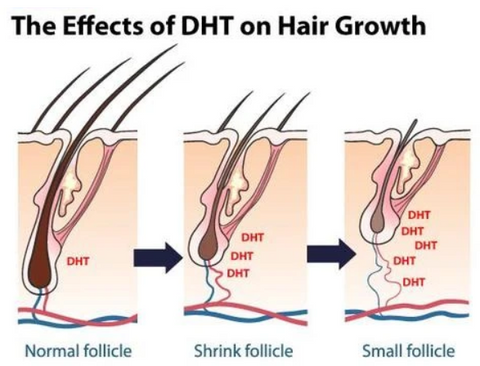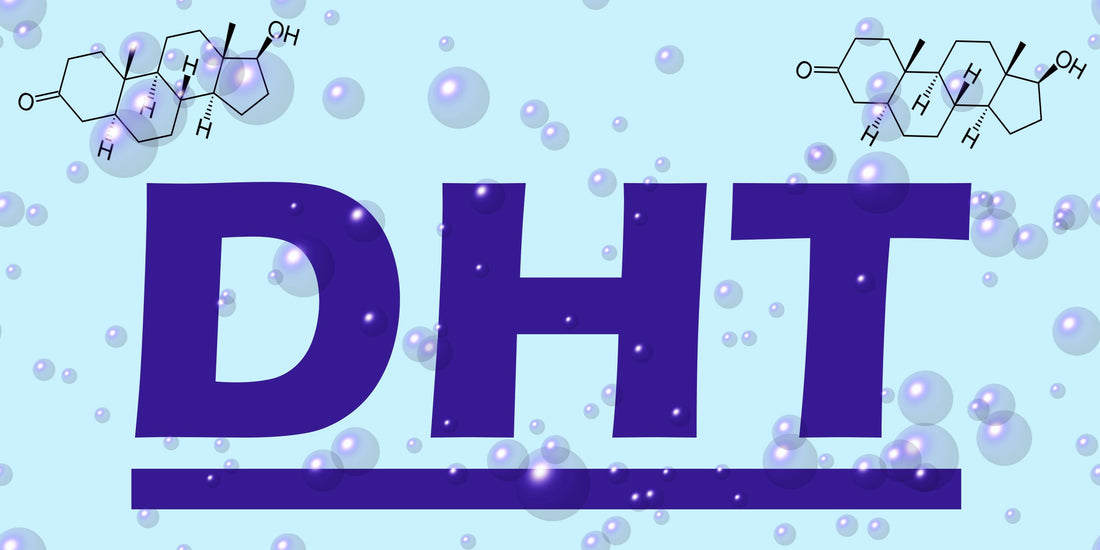Firstly, DHT is a hormone called Dihydrotestosterone. DHT is produced when testosterone enters the hair follicles through gateways known as androgen receptors, then interacting with an enzyme called 5a-reductase.

DHT is necessary in the early stages in life but as we get older, there are no known benefits to us adults. Once formed, DHT causes serious issues to our hair follicles. It basically latches on to androgen receptors at the base of the hair follicles causing a process called miniaturization.
In our previous blog "How the hair growth cycle works!", we talked about the three main phases of the hair growth cycle.
When miniaturization occurs in the hair follicles, hair that grows in during the anagen phase will grow in thinner and thinner. Eventually the hair follicle becomes so small that the hairs being produced must come in thinner to fit through the follicle and shaft. The hair being so thin and weak, breakage can amp up and eventually, once the hair sheds or falls out, it will not regrow again once the follicle shrinks completely.

DHT, being the cause of this process, must be blocked from the hair follicle. There is only one FDA-approved medication that can help reduce DHT levels in the body (finasteride, aka Propecia) however, it is only currently approved for men and comes with a lengthy list of serious side effects.
There are topical products available on the market that claim to block DHT but in order to effectively block DHT, you must use products that are made from clinically-proven ingredients like Navi Hair Solutions' Shampoos and Conditioner. Without clinically-proven DHT blockers, products can be of little to no help. By blocking DHT, the miniaturization process can be prevented, halted and/or reversed, if addressed in time, allowing thicker, fuller and healthier hair growth.
More than likely, if you are suffering from male or female pattern hair loss it could be caused from DHT, as it is the number one cause for pattern hair loss in both men and women. However, there are many other reasons your hair could be thinning. To determine if your hair loss is definitely due to DHT, your physician can run a simple blood test to determine your DHT levels.

Determining the true cause of your hair loss will help you make the best informed decision on the best course of treatment. First and foremost, finding a full line of products that focus on hair and scalp health, is always a good start!
SHOP NOW

